You are viewing the Cultures of Knowledge Blog archive for the ‘Projects and Centres’ Category:
Applications are invited for TWO AHRC Collaborative PhD studentships, commencing in autumn 2012, on the theme of Reconnecting Sloane: Texts, Images, Objects:
- Collecting and Correspondence: Sloane’s Papers and Scientific Networks (Supervised by Dr Arnold Hunt, British Library and Dr Anne Goldgar, King’s College London)
- Putting Nature in a Box: Sloane’s Vegetable Substances (Supervised by Dr Charlie Jarvis, Natural History Museum, and Professor Miles Ogborn, Queen Mary University of London)
- A third Doctoral studentship in the programme, Visualizing Natural Knowledge: Sloane’s Albums of Natural History Drawings (Supervised by Dr Kim Sloan, British Museum, and Dr Elizabeth Eger, King’s College London) has already been allocated to a named student.
Further particulars are available here (doc). Applicants can apply for both studentships, but must complete separate applications for each as outlined below.
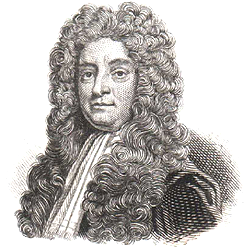 These studentships will focus on the collections of Sir Hans Sloane (1660-1753), which are now divided between the British Museum, the Natural History Museum and the British Library. The research projects will explore various aspects of Sloane’s collections in order to understand how his collecting practices were involved in the making of Enlightenment knowledge. The successful applicants will be expected to work closely with the partner institutions, and each other, in order to draw out the intellectual and material connections between the different parts of Sloane’s collections. They will also participate in the development of new finding-aids for the collections, leading to innovative forms of public engagement.
These studentships will focus on the collections of Sir Hans Sloane (1660-1753), which are now divided between the British Museum, the Natural History Museum and the British Library. The research projects will explore various aspects of Sloane’s collections in order to understand how his collecting practices were involved in the making of Enlightenment knowledge. The successful applicants will be expected to work closely with the partner institutions, and each other, in order to draw out the intellectual and material connections between the different parts of Sloane’s collections. They will also participate in the development of new finding-aids for the collections, leading to innovative forms of public engagement.
The award pays fees and an annual maintenance grant (currently £15,590 per year) and the partner institution will contribute up to £1000 pa research costs. The usual AHRC eligibility rules (pdf) apply to these studentships, including having an appropriate master’s degree by October 2012 and AHRC’s residential requirements.
For both studentships the closing date is 29 June 2012. Interviews will be held in London on 19 July 2012. Applicants will need to include a CV, two references, an academic transcript, and a 1000-word statement of purpose.
The neglected theme of epistolary archives – the active collection and curation of letter objects and related papers within various social and institutional ecosystems over broad expanses of time – is close to the heart of Cultures of Knowledge, so we’re delighted to see that friends and colleagues at the Centre for Editing Lives and Letters at QMUL are organizing a fascinating-sounding anniversary conference on The Permissive Archive. To be held at CELL in November 2012, the conference ‘seeks presentations from a wide range of work which opens up archives – not only by bringing to light objects and texts that have lain hidden, but by demystifying and demonstrating the skills needed to make new histories’. Aiming to rescue archives from their persistent but wildly misleading association with neutrality, inertia, and ‘settled dust’, the conference invites proposals (which should cover the period 1500-1800) on definitions of permissive archives; the shape of the archive – ideology and interpretation; the archive which challenges or disrupts; dispersed collections; the archivist and the historian; the ethics and comedy of the archive; order and anarchy; and many more exciting topics.
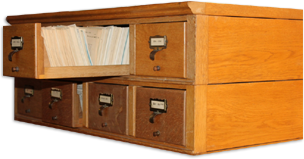 The deadline for 300-word proposals for 25 minute papers is 31 July 2012. For full details and submission instructions, head along to the conference webpage.
The deadline for 300-word proposals for 25 minute papers is 31 July 2012. For full details and submission instructions, head along to the conference webpage.
James Brown
May 22, 2012
Conferences and Workshops, Events, Project Updates, Projects and Centres
Tags: CKCC, Databases, IMPAcT, ImpulsBauhaus, Mapping the Republic of Letters, Networks, Prosopography, The French Book Trade in Enlightenment Europe, Union Catalogue, Union Catalogue News, Visualization, Wikipedia
While Anna Marie was weaving animal magic at the Royal Society, our Technical Director Neil Jefferies and I were headed to the Forzhungszentrum Gotha of the University of Erfurt for an invited workshop on ‘Visualizing Data Resources: The Potential of a Wikimedia Platform for the Digital Humanities’ (27–28 April 2012). Expertly organised by Martin Mulsow, Olaf Simons, and Kristina Petri, and generously funded by Wikimedia Deutschland – the largest and most active of the national chapters – the workshop provided an inspiring forum for a wide range of international participants and projects to share approaches and converge on the question of Wikipedia, the digital humanities, visualizations, and many points in between (see the full description [pdf]).
One set of presentations showcased the Wikimedia community’s own plans for data capture and computational seeing, many of which have great potential for the digital humanities; not always a straightforward relationship, as Olaf discussed in his opening address. These include Wikidata (a collaboratively curated, centralised database of entities designed to support the 280+ language editions of Wikipedia, as well as third-party initiatives, currently under development), and Semantic Mediawiki, an open source extension to Wikipedia capable of (re)organizing the site’s existing content into highly configurable, collectively editable semantic databases. The accumulation and management of structured, actionable (wiki)data within these streamlined platforms will facilitate the creation and deployment of information visualizations across the site’s many interfaces, and by its millions of users in the context of exports and mash-ups.
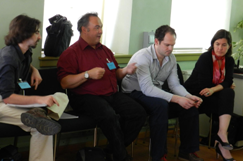
Scott Weingart (Indiana/CKCC), Neil (CofK/Oxford), James (CofK/Oxford), and Nicole Coleman (MRofL/Stanford).
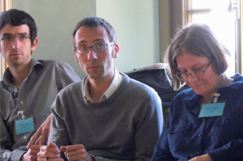
Andreas Wolter (ImpulsBauhaus), Jens Weber (ImpulsBauhaus), and Judith Pfeiffer (IMPAcT/Oxford).
A second cluster of talks focused on the data capture, curation, and visualization techniques and applications being pursued and developed by humanistic projects based in archives, libraries, and universities worldwide. As well as presentations from ourselves and good friends Mapping the Republic of Letters, The French Book Trade in Enlightenment Europe, CKCC, IMPAcT, and Scott Weingart, we heard about (inter alia) linked data and gamification at the University of Colorado; an adaptive, interactive, dynamic historical atlas (AIDA) being created at the University of Erfurt; and the wonderful ImpulsBauhaus initiative based at the the Bauhaus-Universität Weimar. Designed to collect information on and represent the global social networks of the Bauhaus, and led by the designer-developer team Jens Weber and Andreas Wolter in 2009, the project harvested extensive biographical and prospopgraphical data on the movement’s participants and affiliates within a specially designed platform which served as the basis for dynamic network infographics and an interactive three-dimensional table, presented most memorably within an illuminated cube. A video of this extraordinary project opens the post.
Kim McLean-Fiander
May 13, 2012
Events, Lectures, Podcasts, Project Updates, Projects and Centres, Websites and Databases
Tags: Archives, Bess of Hardwick, Digitization, Editions, England, Gender, Materiality, Sixteenth Century, Women
 Podcast available on the seminar page!
Podcast available on the seminar page!
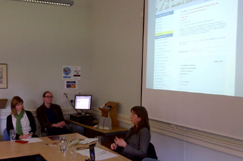
Alison fields questions.
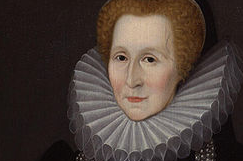
Bess in the 1590s.
Dr Alison Wiggins of the University of Glasgow got our third seminar series off to a brilliant start on 26 April with a sophisticated and thought-provoking presentation on Editing Bess of Hardwick’s Letters Online. As Principal Investigator of the Letters of Bess Hardwick Project (funded by the AHRC), Alison described the benefits and methodological challenges of digitizing this unique Renaissance correspondence, which consists of approximately 245 extant letters (160 to and 85 from Bess) scattered across 18 different repositories spanning a period of nearly 60 years.
Using several examples drawn from the corpus, Alison argued that making all of the letters available in an open-access, fully searchable online edition will enable scholars to pursue a wide range of linguistic, sociological, and historical questions, and will allow them to arrive at a much more comprehensive and nuanced understanding of the character of Bess herself, who has been variously depicted as a materialistic virago or as an admirable defender of women’s honour.
 Moving on to more methodological questions, Alison explained that capturing and communicating significant information on the material and visual features of letters, such as the writer’s use of ‘significant space’, paper quality and size, the employment of colourful silk ribbons and flosses, seal choice, and the many varieties of folding, can be particularly difficult in a digital environment, which has a tendency to reify disembodied text at the expense of the letter-object (concerns also raised by Henry Woudhuysen and James Daybell in previous talks). This is a significant problem, since such information is not just antiquarian micro-detail; on the contrary, for contemporary recipients, all of these carefully considered material decisions on the part of the sender conveyed specific social meanings about politeness, deference, and hierarchy which set important parameters for the reception and consumption of a letter’s written content. However, such physical variables and their nuances are not easy to capture faithfully with a simple measurement or colour chart reference in a metadata field. The solutions developed by Alison and her team in the context of the Bess project (such as encoding each of the four recognized kinds of letter-fold − tuck and fold, slit and band, accordion, and sewn − within each letter’s XML to facilitate searching and filtering by plicature and packet type) genuinely move forward thinking in this oft-neglected area and will be of great interest to other digital initiatives.
Moving on to more methodological questions, Alison explained that capturing and communicating significant information on the material and visual features of letters, such as the writer’s use of ‘significant space’, paper quality and size, the employment of colourful silk ribbons and flosses, seal choice, and the many varieties of folding, can be particularly difficult in a digital environment, which has a tendency to reify disembodied text at the expense of the letter-object (concerns also raised by Henry Woudhuysen and James Daybell in previous talks). This is a significant problem, since such information is not just antiquarian micro-detail; on the contrary, for contemporary recipients, all of these carefully considered material decisions on the part of the sender conveyed specific social meanings about politeness, deference, and hierarchy which set important parameters for the reception and consumption of a letter’s written content. However, such physical variables and their nuances are not easy to capture faithfully with a simple measurement or colour chart reference in a metadata field. The solutions developed by Alison and her team in the context of the Bess project (such as encoding each of the four recognized kinds of letter-fold − tuck and fold, slit and band, accordion, and sewn − within each letter’s XML to facilitate searching and filtering by plicature and packet type) genuinely move forward thinking in this oft-neglected area and will be of great interest to other digital initiatives.
Following a brief, appetite-whetting demonstration of the Bess letters alpha software, a lively question and answer session concluded the seminar, which covered such topics as the sociolinguistic significance of employing scribes and the iconographic implications of Bess using her ‘ES’ signature both in letters and as architectural embellishment on her stately home, Hardwick Hall. Broader concerns were also addressed, including the need for digital projects to produce REF-friendly outputs – an increasingly important theme – and ways of ensuring the preservation and accessibility of online resources long after project funding comes to an end. The soon-to-be-released Bess of Hardwick Letters Online will include annotated transcriptions of all of the letters and images of many, as well as articles and podcasts offering further contextual analyses of the correspondence. For news about its release date, stay tuned!
Seminars take place in the Faculty of History on George Street on Thursdays at 3pm. For future talks in the series – and to listen to the podcast of Alison’s paper – please see the seminar webpage. All are welcome!
As part of their recent strategic alliance with Queen Mary, University of London, the Centre for the Study of the Renaissance at the University of Warwick has announced two Postdoctoral Research Fellowships, one based at Queen Mary and one at Warwick, on the theme of ‘Networks and Information Technologies, 1300-1800’. To form part of the collaborative project ‘Rewiring the Renaissance: Cultural Networks and Information Technologies’, the Fellows will explore modes of communication and networking in the Renaissance period, from letter writing to orality, and develop IT-led modern mechanisms which can capture and analyse the Renaissance communities that were constructed. Projects that explore cultural transmission in any media or European language are welcome; in addition, the Queen Mary Postdoctoral Research Fellow will be expected to have the skills that will allow for an interrogation of the ways in which we communicate historical information in a digital world.
The deadline for applications is Friday, 11 May 2012. For background information on the collaboration, further details about the two posts, and to apply, please visit the project webpage. Please send informal enquiries to Dr Penny Roberts.
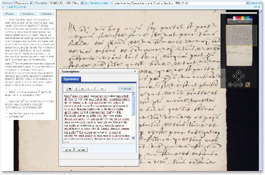 A beta version of the correspondence of the sixteenth-century naturalist Carolus Clusius (1526-1609), developed by the Huygens ING (KNAW) and the Scaliger Institute (Leiden University Libraries), is now available online. Created with eLaborate, the online transcription platform developed by Huygens ING, the site currently features fully searchable transcriptions of 450 letters, but metadata on all known letters together with scans of 1,300 letters in the Leiden University Library are also included. Scholars in the field of the history of science, students of languages and paleography, and anyone seriously interested in the history of botany are invited to participate in the ongoing refinement of the resource, contributing new transcriptions, or improving existing texts. For further information and a link to the beta, please visit the Project webpage.
A beta version of the correspondence of the sixteenth-century naturalist Carolus Clusius (1526-1609), developed by the Huygens ING (KNAW) and the Scaliger Institute (Leiden University Libraries), is now available online. Created with eLaborate, the online transcription platform developed by Huygens ING, the site currently features fully searchable transcriptions of 450 letters, but metadata on all known letters together with scans of 1,300 letters in the Leiden University Library are also included. Scholars in the field of the history of science, students of languages and paleography, and anyone seriously interested in the history of botany are invited to participate in the ongoing refinement of the resource, contributing new transcriptions, or improving existing texts. For further information and a link to the beta, please visit the Project webpage.
On Thursday 3 May Florike Egmond from the Clusius Project will be sharing a paper on Clusius, collecting, and practices of scientific illustration in our third annual seminar series. For her talk and seven other exciting contributions, please visit the seminar webpage.
 These studentships will focus on the collections of Sir Hans Sloane (1660-1753), which are now divided between the British Museum, the Natural History Museum and the British Library. The research projects will explore various aspects of Sloane’s collections in order to understand how his collecting practices were involved in the making of Enlightenment knowledge. The successful applicants will be expected to work closely with the partner institutions, and each other, in order to draw out the intellectual and material connections between the different parts of Sloane’s collections. They will also participate in the development of new finding-aids for the collections, leading to innovative forms of public engagement.
These studentships will focus on the collections of Sir Hans Sloane (1660-1753), which are now divided between the British Museum, the Natural History Museum and the British Library. The research projects will explore various aspects of Sloane’s collections in order to understand how his collecting practices were involved in the making of Enlightenment knowledge. The successful applicants will be expected to work closely with the partner institutions, and each other, in order to draw out the intellectual and material connections between the different parts of Sloane’s collections. They will also participate in the development of new finding-aids for the collections, leading to innovative forms of public engagement.
 The deadline for 300-word proposals for 25 minute papers is 31 July 2012. For full details and submission instructions, head along to the
The deadline for 300-word proposals for 25 minute papers is 31 July 2012. For full details and submission instructions, head along to the 



 Moving on to more methodological questions, Alison explained that capturing and communicating significant information on the material and visual features of letters, such as the writer’s use of ‘significant space’, paper quality and size, the employment of colourful silk ribbons and flosses, seal choice, and the many varieties of folding, can be particularly difficult in a digital environment, which has a tendency to reify disembodied text at the expense of the letter-object (concerns also raised by
Moving on to more methodological questions, Alison explained that capturing and communicating significant information on the material and visual features of letters, such as the writer’s use of ‘significant space’, paper quality and size, the employment of colourful silk ribbons and flosses, seal choice, and the many varieties of folding, can be particularly difficult in a digital environment, which has a tendency to reify disembodied text at the expense of the letter-object (concerns also raised by 

 Join
Join 